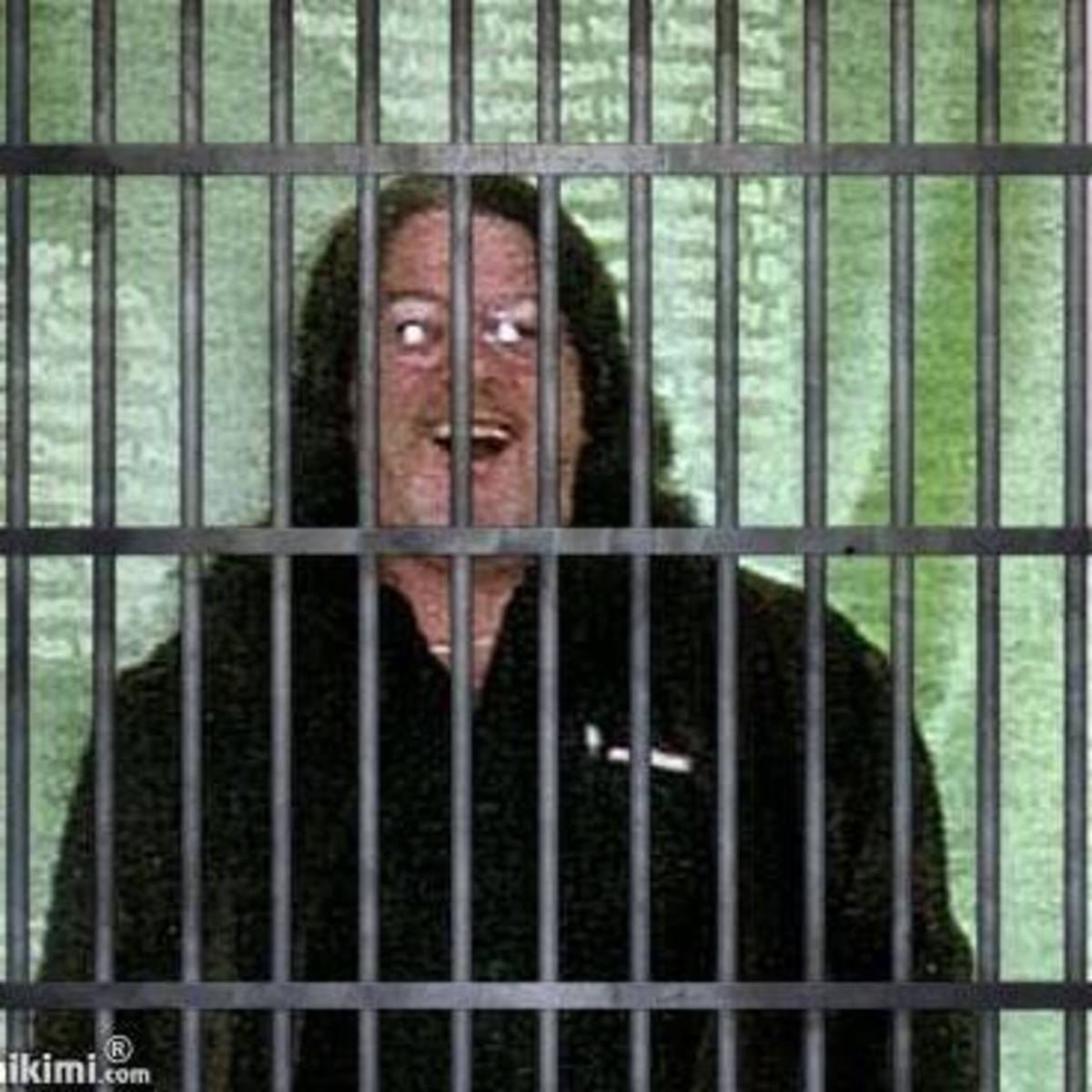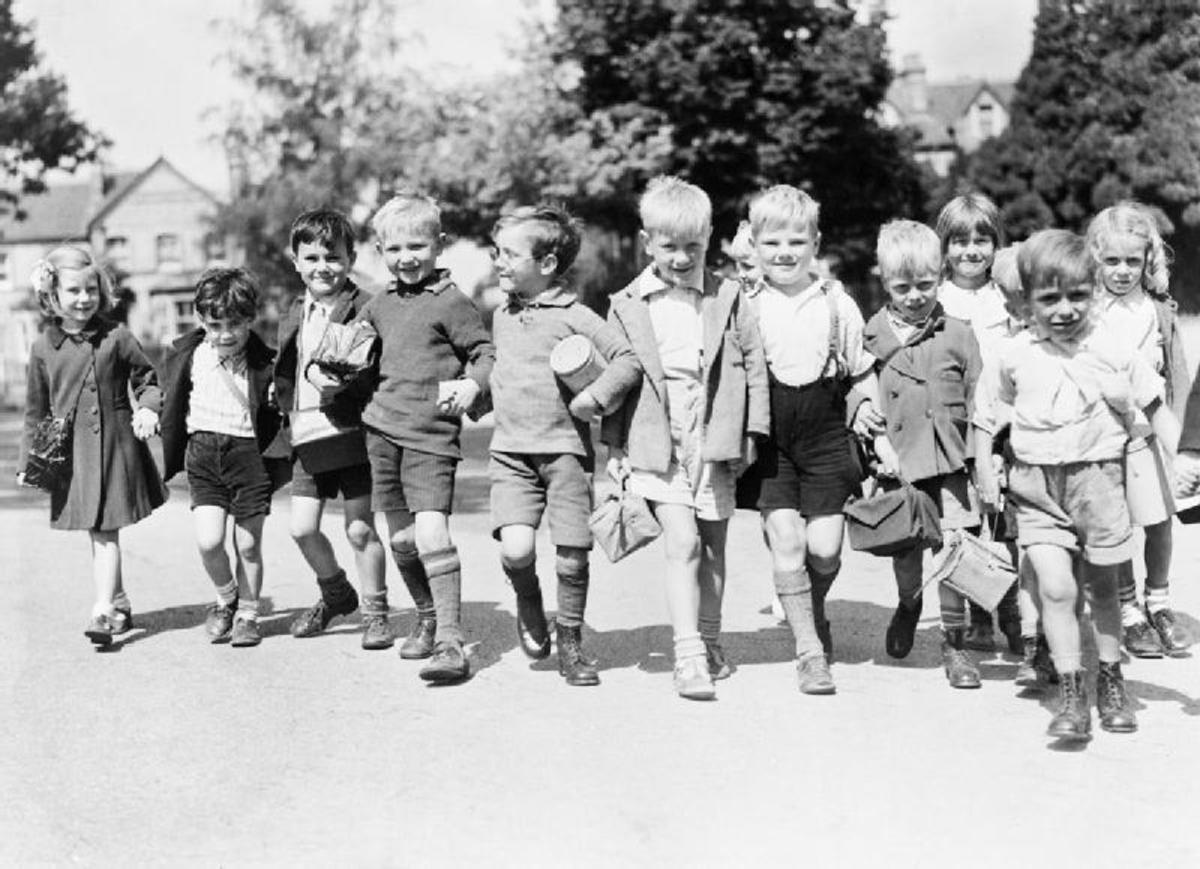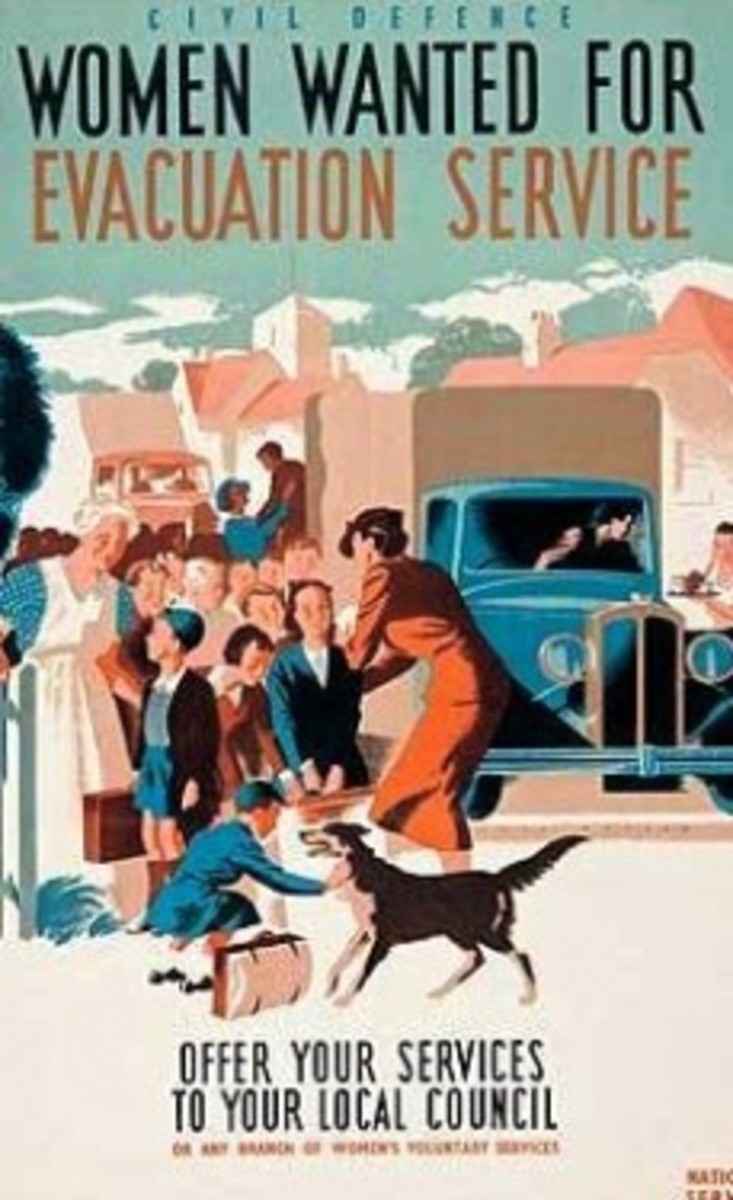- HubPages»
- Education and Science»
- History & Archaeology»
- History of the Modern Era»
- Twentieth Century History
MLK, JR.: "Letter from Birmingham Jail"
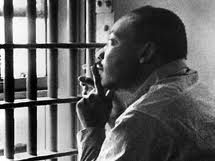
In April 1963 the Reverend Martin Luther King, Jr. and the Southern Christian Leadership Conference (SCLC) traveled to Birmingham, Alabama to join with the Alabama Christian Movement for Human Rights (ACMHR) and conduct a massive direct action campaign against the city’s segregation system. Their intent was to put pressure on the city’s merchants during the Easter season, the second biggest shopping season of the year
Desegregation Campaign
The campaign began on April 3rd with a series of mass meetings, direct actions, lunch counter sit-ins, marches on City hall, and a boycott of downtown merchants. King spoke at the mass meetings espousing his philosophy of nonviolence and its methods and extended appeals to volunteers. As the numbers of protesters swelled with volunteers the actions were extended to kneel-ins at churches, sit-ins at the library, and a march on the county building to register voters. Many were arrested.
On April 10th the city obtained an injunction against the protests, and, after a lot of debate, campaign leaders decided to disobey the court order. King declared, “We cannot in all good conscience obey such an injunction which is an unjust, undemocratic and unconstitutional misuse of the legal process.”
The campaign had a financial shortfall and was running out of bail money for those arrested and could no longer guarantee they would be able to get arrested protesters out of jail. King had a momentous decision to make; should he submit himself for arrest. He was the best fundraiser for the SCLC and his abilities were sorely needed now with the shortage of monies; however, he was concerned that if he was seen as unwilling to subject himself to arrest it would undermine his credibility. He determined that he must risk it all and subject himself to arrest.
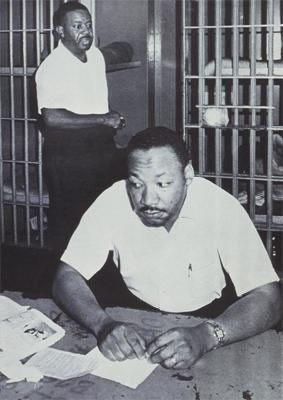
Birmingham Jail
On Good Friday, April 12th, King was arrested for violating the anti-protest injunction. He was kept in solitary confinement and denied the right to call his wife who was home recovering from the birth of their fourth child. Coretta Scott King conveyed her concern to the Kennedy administration and, shortly thereafter, King was allowed to make his call. Bail money was gathered and he was released from Birmingham jail on April 20th.
The Letter
While incarcerated King had the opportunity to read a letter, “A Call for Unity,” from eight white, Birmingham clergymen published in the newspaper that criticized King and the Birmingham Movement for inciting civil disturbances. In their letter the clergymen called King an outside agitator, stated that the best way to fight social injustice was through the legal system and that direct action was counterproductive, and they argued the demonstration was poorly timed and the activists should have waited. Dr. King wrote his response, “Letter from Birmingham Jail” in the margins of the newspaper which was then smuggled out of the jail, piece by piece, by his lawyers.
In his response King addresses the clergymen and acknowledges their concern for the demonstrations taking place in Birmingham and acknowledges that they are men of good will and recognizes their genuineness. He states he will attempt to address their concerns in both reasonable and patient terms.
He goes on to state why he is in Birmingham, ultimately because of his leadership of the SCLC and their connection to the local organization, the ACMHR, who has invited him. He further states that he is in Birmingham because injustice is in Birmingham. He goes on to compare his mission to the early Christians who left their home and towns to spread the word throughout the land.
He also states that as an American he is not an outsider because injustice anywhere in this country is a threat to justice everywhere. Therefore, he cannot sit idly in Atlanta while this injustice goes on in Birmingham. He also argues that anyone who lives within the boundaries of America cannot be considered an outsider anywhere within those boundaries.
He recognizes their concerns for the demonstrations taking place in Birmingham but questions where their concern is for the conditions that brought about the demonstrations. As to their objection to the Movement’s use of direct action he states that the white power structure in Birmingham, in other words the “legal system,” left them with no other choice and that the mass demonstrations were both inevitable and necessary. He describes Birmingham as the most thoroughly segregated city in the United States and further develops the argument that there was absolutely no recourse left to the black population of Birmingham. By using logical argument that is structured and sequential, King is appealing to the thoughts and logic of an educated person no matter what their race.
King initially agrees with the clergymen’s position that negotiation is a better path than direct action; then he subtly tears the argument apart and moves into an explanation of the importance of “tension.” He discounts violent tension as undesired and then moves into an argument for nonviolent tension which he labels as constructive. He states his belief that the tension created by nonviolent acts will help men realize the dark depths of prejudice and bring them to a place of understanding and brotherhood. He continues to reiterate his position of trying to create an open-door dialogue where both sides have power.
As to the timing of the demonstration King states that though they did postpone their actions until after the election it wasn’t as if the new city administration was any less segregationist than the previous one. “We know through painful experience that freedom is never voluntarily given by the oppressor; it must be demanded by the oppressed.” King goes on to state that he has yet to participate in a direct action campaign that was “well timed.” He further describes the word “Wait!” as almost always meaning “Never.” “Justice too long delayed is justice denied.”
He addresses the clergymen’s concern for the demonstrator’s willingness to break laws with a discussion of morals and the difference between just and unjust laws. Using his skill as a writer King guides his audience through his rationalization of the two types of laws and ultimately his linking of segregation with those laws he has deemed as unjust.
King concludes by declaring that initially he was disappointed as being characterized as an extremist. However, as he thought about it he gained a certain satisfaction from it. He asks if men like Jesus, Thomas Jefferson and Abraham Lincoln were not extremists. He ends by stating perhaps the South, the nation and the world are in dire need of creative extremists.
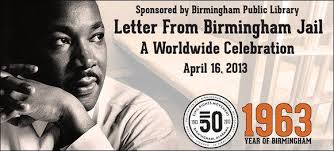
Impact
King’s “Letter from Birmingham Jail” had no direct effect on the Birmingham campaign as most of those issues were resolved prior to its publication. The eight white clergymen felt that King had singled them out unfairly and for the rest of their days they would be known as the men who publicly chastised King.
As the letter reached a wider audience things began to happen. Because of King’s skill as a wordsmith and the truth and conviction behind his words, support for civil rights legislation began to swell. Liberal white organizations, specifically the National Council of Churches, responded by endorsing the movement’s goals and played a large part in lobbying Congress in support of the 1964 Civil Rights Act.
At the time of the letter Birmingham conjured up images of Eugene “Bull” Connor’s police, snarling dogs, and high-powered fire hoses. It was one of the most rigidly segregated cities in America although African-Americans made up 40% of the population. It was written that the streets, water supply, and sewer system were the only public facilities shared by both races. By the time Dr. King was assassinated, five years later, Jim Crow laws in Birmingham had been smashed and the letter had been translated into forty languages.
Today, “Letter from Birmingham Jail” is considered a classic of world literature. It has become a modern manifesto for nonviolent resistance based on the teachings of Jesus and Gandhi. It has been cited and disseminated from South Africa and Ghana to behind the Iron Curtain in Poland and East Germany. Bob Marley kept the text on his person at all times for good luck.
“Letter from Birmingham Jail” has become the holy writ of the downtrodden masses of the world.

